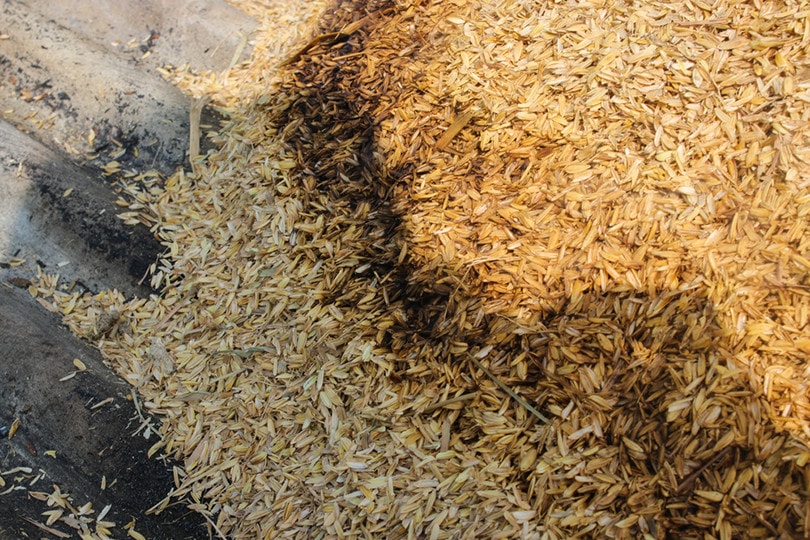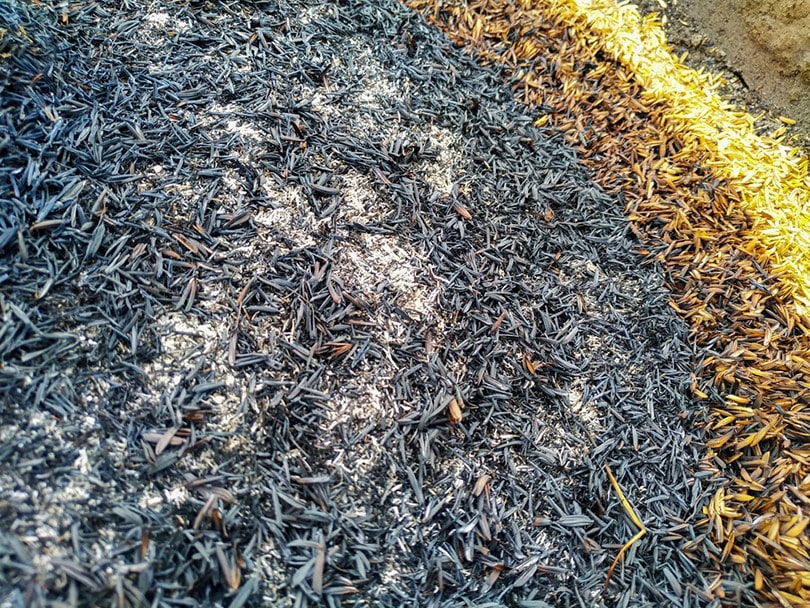Can You Compost Rice? What You Need To Know!
-
Shea Cummings
- Last updated:

Almost any organic material can be composted, but that doesn’t mean that all should be or are easy. Rice is one of these complicated materials. The quick, simple answer is yes, rice can be composted. However, composting rice should only be undertaken by an experienced composter because of the potential complications.
We all start somewhere on our composting journey. If that’s you, keep reading as we discuss some of the complications surrounding composting rice and how you can set yourself up to win right from the get-go.
There are a couple of things to keep in mind about composting rice before starting if you’re new to composting. Add rice in moderation until you get used to doing it properly to lower the chances of spoiling a whole pile. Also, a hot compost heap is the best way to compost rice. However, there are a few other options too.
Why is Rice Complicated?
You’ll read many divided opinions on the web about composting rice. Some will say it’s totally fine, and others will say not to do it. Then there’s the camp in the middle that says to do it—if you’re going to do it right. But what makes rice such a complicated organic material?
Cooked rice is sticky and tends to clump together. So, one of the main complications of rice is that it can prevent good airflow in the compost pile, thus reducing the amount of oxygen present. This disrupts the decomposition process and can quickly create a stinky mess that won’t be suitable for spreading in your garden.
The introduction of bacteria is not unique to rice, but like any cooked food, this is always a risk. This is why a hot compost heap is better suited for cooked food products; it will decompose much faster.
Those complications are not as big of a deal with raw rice, but then you’ve got the potential for a new one—rodents. Rice is a prime candidate for small rodents to use as material for burrowing a new home. Adding moderate amounts of rice will prevent this from becoming an issue.
The above complications still assume we’re talking about plain uncooked or cooked rice. If the rice has oils or sauces on it, you’ve also got a recipe for pest and bacteria problems. That’s not to say it can’t be done. But the importance of doing it correctly is that much more critical.

How to Compost Rice
We looked at the problems that could come up. Now, let’s look at the solutions. There is more than one way to compost rice. Below we’ll go over several of the best methods to do it successfully.
- Hot Compost: Because hot compost can reach temperatures of up 160 degrees, it breaks down the rice quickly. In addition to how quickly it breaks everything down, the high temperature kills harmful bacteria. So cooked rice, or any other cooked material, is not such a big deal.
- Closed Bin: If you don’t have a hot compost heap, a closed, pest-proof bin is the next best thing. Being closed solves the rodent problem. However, you’ll need to be diligent about stirring the pile to ensure it’s getting good oxygen throughout.
- Compost Tumbler: A compost tumbler makes it easy to ensure the pile is getting stirred enough. Plus, being up higher helps keep unwanted visitors out. A compost tumbler is a great alternative to hot compost for many tricky organic materials.
- Worm Bin: Another great way to compost rice is in your worm bin. Worms will enjoy the snack—even if it’s a stale one. However, make sure you are not adding too much because whatever they don’t eat will rot in the dirt. A good rule of thumb with a worm bin is to only add what the worms will eat in a few days.
Related Read: Can You Compost Coffee Grounds? What You Need To Know!
Conclusion on Composting Rice
If you’re getting into composting, throwing any non-meat organic material in the trash can be a shame. One of the main reasons we get into composting is to reduce waste and give back to the environment. However, unless you want to put in the work to do it properly, composting rice may end up causing more problems than it’s worth. If you decide to take the plunge, follow the steps above to give your compost pile the best chance at success!
Featured Image Credit: jamaludinyusuppp, Shutterstock
